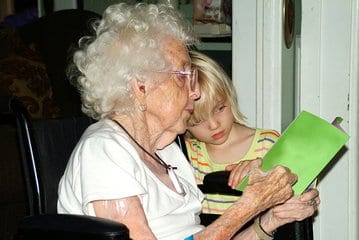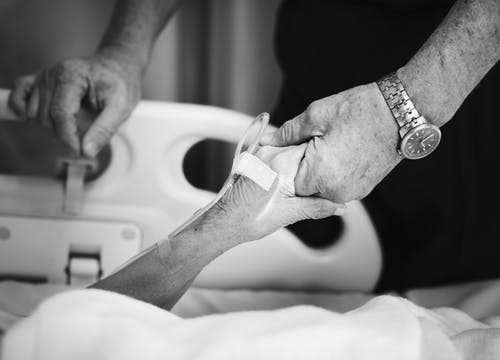The light was flashing on my answering machine when I came home from going into work to meet my “one day a week onsite” obligation. Lynn has difficulty answering the phone before it automatically rolls to voicemail so we don’t even try to have him do it when I’m away. I checked the message and excitement spread throughout my body—someone was calling to see if we might be interested in selling the land we had. She explained they had lived in the area for a while and needed to build a house to accommodate her husband’s wheelchair. She shared in her message that she had seen that we had a foundation started on the land but that it appeared to have been sitting there a while and wanted to know if we might be interested in selling.
I was so excited! I’ve been hoping to sell that land for years now even though it did not have a “for sale” sign posted. Was God sending me an answer to prayer? Would it really be this easy that I could finally get that land paid off and maybe have enough left over to pay some bills as well? Even if there wasn’t money left over, it would mean being able to pay off the $43,000 loan on that land! We would lose a lot of money, no doubt, because we had a lot of money invested in the land. We had paid to have approval for a pond to be built (which never was); Lynn had spent two years putting in a cinder block full basement and foundation for the planned timber-frame house; we had the timbers already cut for the tongue and grove frame sitting in a storage container on the land. All of that would certainly be lost in any deal because it was needed for
our house and probably would not be of interest to anyone else. However, I was willing to let that go because the reality is….I don’t want to move there anymore.
We bought that land in the early 2000s. Our children were still in high school. Lynn had not been
diagnosed with MS. He was a carpenter and after we got married, he wanted to build a house that was “ours” and not live in the one that I had built with my first husband. He drafted plans for a timber-frame house that was beautiful. We found the perfect land that would support a full basement (where the children’s rooms would be)with a main floor two stories high with an open ceiling and a loft on each side of the second story with nothing but windows in the back. A full wrap-around porch, a stone fireplace, an attached two car garage on six acres of land with access to a pond in the back. It was going to be gorgeous! Plus, just in case Lynn did get MS one day, the doors would be wide and we were considering installing an elevator for access from the ground to the main floor.
Lynn started to work on it…slowly. He was doing it all himself. First, he waited on the Corp of Engineers to approve the pond installation. Hurricane Katrina caused a two-three year delay waiting on the pond. We finally stopped waiting on that and he started putting in the foundation. He laid the cinder block, alone for the most part, after work and on weekends. Then, five or six years into the project, he was diagnosed with
MS. At first it didn’t bother him but gradually, he couldn’t work without a helper (me or one of the boys) and then he couldn’t do more than an hour at a time before he was too
exhausted to keep going.
Now it’s been four years since we have even set foot on the land. The house we live in is in bad need of repair and maintenance which he can’t do and I don’t have time or know how to do it. The economy is such that selling our current home and making enough to be able to
afford to build the new home is unlikely with all the repairs needed here; plus where would we live till the new house could be built? The timbers previously cut have dried over the years so it’s unlikely they would fit together well without being re-cut and adjusted. It would take a lot of money to build that house now. Plus, my daughter is now married and lives ten minutes away with her husband and most importantly, my grandchild. She and her husband help us out so much and if we moved, they would not be able to do. So, in my mind, I’ve let go of the dream and faced the reality that we need to sell that land and recoup whatever amount of our investment we can so we can do repairs on this house and pay off many of our mounting bills. Therefore, this call was a blessing in my mind and I excitedly danced down the hall to tell my husband.
Whose face immediately crumpled at the news as he fought hard not to cry….
continue reading at:
http://multiplesclerosis.net/living-with-ms/reality-dreams-dont-mix-one-wins/











